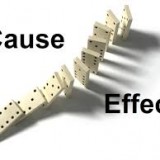If causes of depression are not “divisible”, defendants are liable for all symptoms.
Ms. K. suffered whiplash type injuries in a 2007 car accident. Her pain became chronic and she became depressed. The consensus of the medical experts at her trial was that “her chronic pain is unlikely to resolve and the focus of her treatment should be on pain management, not cure.” Ms. K. admitted that she had a troubled childhood. also, a few years after her accident she experienced a torn rotator cuff, then shoulder surgery and then a frozen shoulder which were all unrelated to her accident. In K. v. Galasinao, 2015 BSSC 1532, Mr. Justice Blok concluded that “there is a...
read more$3 million award for brain injury.
On December 14, 2015, the BC Supreme Court assessed damages of $3 million dollars for a plaintiff who sustained a brain injury in a vehicle collision. In Grassick v. Swansburg the plaintiff, who was 16 at the time, was a pedestrian and struck by a vehicle driven by the defendant. The plaintiff suffered a moderate to severe brain injury which impacted his cognition and was expected to have permanent repercussions. The Court found that the plaintiff was an ambitious and hard working young man who, but for the brain injury, would have had a successful career in his anticipated...
read more$60,000 in damages for chronic back injury.
On November 16, 2015, the BC Supreme Court assessed damages for lingering injuries caused by two vehicle collisions. In Ali v. Rai, 2015 BCSC 2085, the plaintiff was involved in two collisions in 2011. He was found faultless for both. The collisions caused a lingering back injury which remained symptomatic at the tie of trial and the symptoms were expected. The Court found both collisions caused the injury and it was indivisible. In assessing non-pecuniary damages at $60,000 Madam Justice Duncan provided the following reasons: [134] On the whole of the evidence, I find the plaintiff suffered...
read more$60,000 in damages for STI with headaches.
On November 10, 2015, the BC Supreme Court awarded non-pecuniary damages of $60,000 for chronic soft tissue injuries with associated headaches. In Hinder v. Yellow Cab Company Ltd., 2015 BCSC 2069, the plaintiff was involved in an intersection collision. The defendant denied liability but was found fully at fault at trail. The plaintiff suffered a variety of soft tissue injuries, some of which resolved. She continued to have neck symptoms with associated headaches at the time of trial (some five years later) which were expected to linger into the future. In assessing non-pecuniary damages at...
read more$131,250 for chronic TMJ injury.
On October 1, 2015, the BC Supreme Court assessed damages for a severe jaw injury sustained in a motor vehicle collision. In Williams v. Gallagher the plaintiff, who was 20 at the time, was involved in a 2010 vehicle collision caused by the defendant. The plaintiff suffered a variety of injuries the most serious of which was an injury to the temporomandibular (TM) joints in his jaw. This required surgical intervention which did not cure his pain and the plaintiff was expected to have chronic lingering problems. In assessing non-pecuniary damages at just over $130,000 after factoring in...
read moreDrunken push leads to over $1/2 million award.
In a stark example of the profound consequences that can come from a modest confrontation, on September 30, 2015 the BC Supreme Court ordered damages of $553,000 to be paid, after an intoxicated groom to be pushed a man that was teasing him. In Robinson v. Bud’s Bar Inc., 2015 BCSC 1767, the defendant, a groom to be who was “exotically dressed and wearing a ball and chain” following a bachelor party, was approached by the plaintiff and teased about his upcoming marriage. Both parties were intoxicated. The defendant responded by pushing the plaintiff who fell down, struck his head on the...
read more









